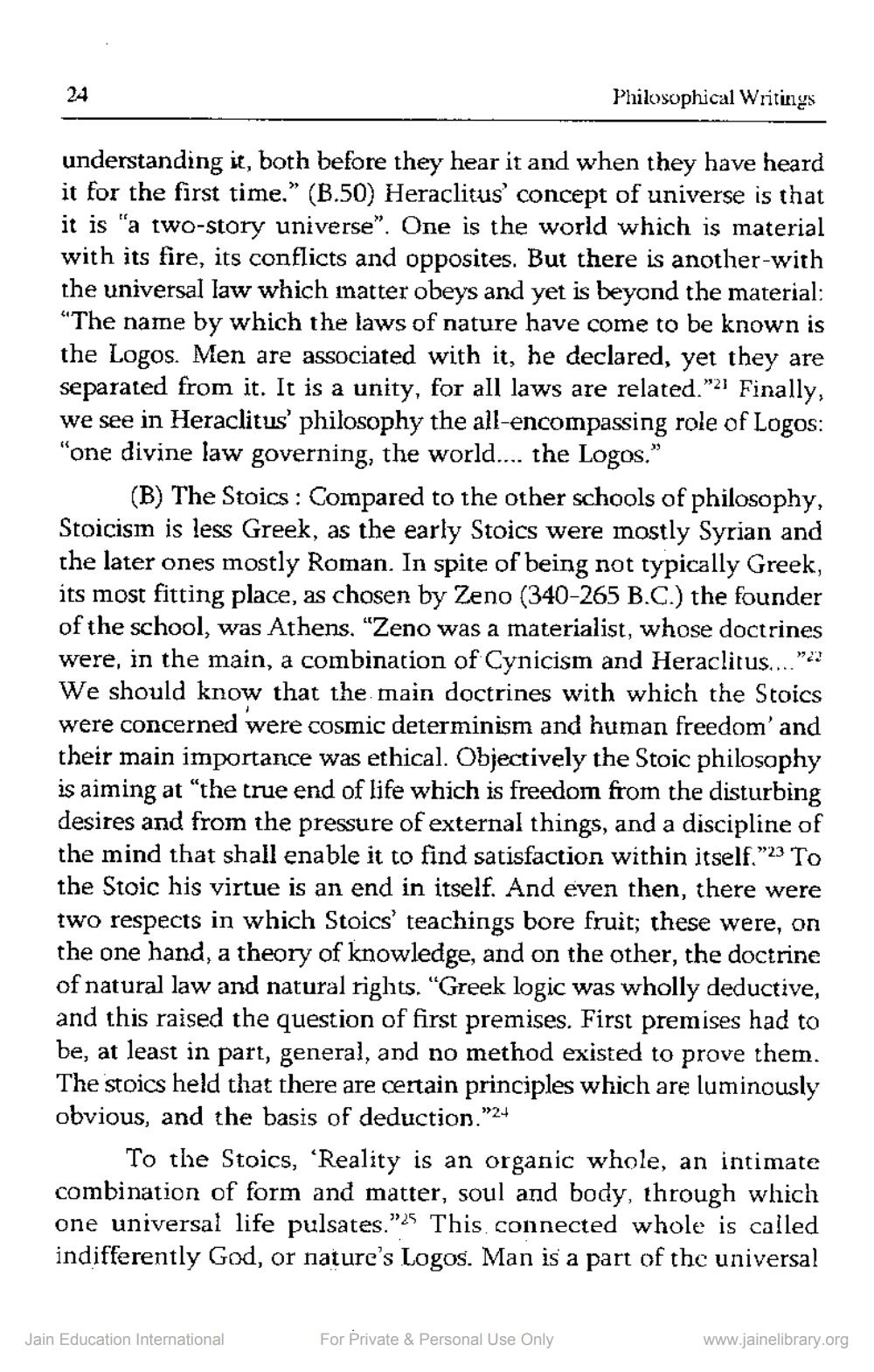________________
Philosophical Writinys
understanding it, both before they hear it and when they have heard it for the first time.” (B.50) Heraclitus' concept of universe is that it is "a two-story universe". One is the world which is material with its fire, its conflicts and opposites. But there is another-with the universal law which matter obeys and yet is beyond the material: “The name by which the laws of nature have come to be known is the Logos. Men are associated with it, he declared, yet they are separated from it. It is a unity, for all laws are related."21 Finally, we see in Heraclitus' philosophy the all-encompassing role of Logos: "one divine law governing, the world.... the Logos."
(B) The Stoics : Compared to the other schools of philosophy, Stoicism is less Greek, as the early Stoics were mostly Syrian and the later ones mostly Roman. In spite of being not typically Greek, its most fitting place, as chosen by Zeno (340-265 B.C.) the founder of the school, was Athens. “Zeno was a materialist, whose doctrines were, in the main, a combination of Cynicism and Heraclitus..."?? We should know that the main doctrines with which the Stoics were concerned were cosmic determinism and human freedom' and their main importance was ethical. Objectively the Stoic philosophy is aiming at "the true end of life which is freedom from the disturbing desires and from the pressure of external things, and a discipline of the mind that shall enable it to find satisfaction within itself,"23 To the Stoic his virtue is an end in itself. And even then, there were two respects in which Stoics' teachings bore fruit; these were, on the one hand, a theory of knowledge, and on the other, the doctrine of natural law and natural rights. "Greek logic was wholly deductive, and this raised the question of first premises. First premises had to be, at least in part, general, and no method existed to prove them. The stoics held that there are certain principles which are luminously obvious, and the basis of deduction."24
To the Stoics, ‘Reality is an organic whole, an intimate combination of form and matter, soul and body, through which one universal life pulsates."25 This connected whole is called indifferently God, or nature's Logos. Man is a part of the universal
Jain Education International
For Private & Personal Use Only
www.jainelibrary.org




